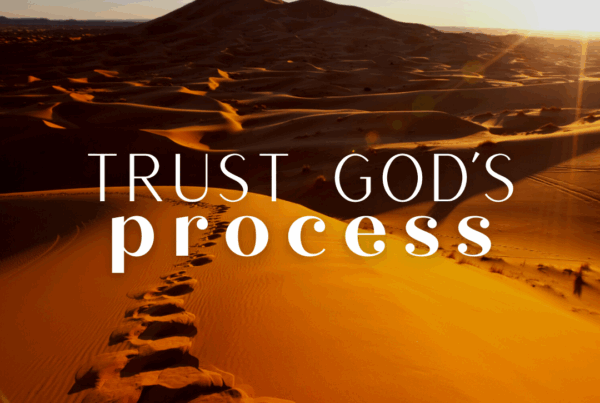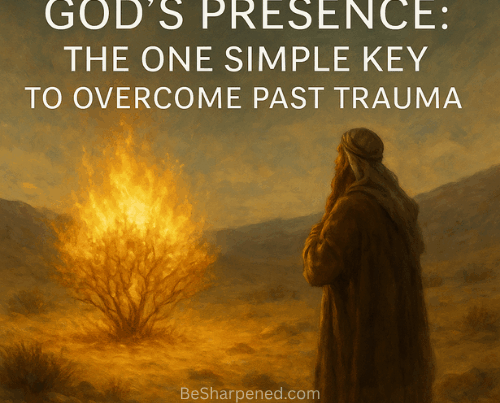I preached the sermon Seize Your Beautiful Destiny Through a Clear Identity, drawn from Exodus 3:1-10, in my local church’s first service on Sunday, 6th April 2025. My sermon was based on the fact that many people long for direction, significance, and a sense of destiny. But few realize that destiny begins with identity, and a clear one for that matter.
No wonder, in Exodus 3, Moses was not searching for a mission—he was tending sheep. But God was ready to activate what had always been in him: the heart of a deliverer. Because destiny is not stumbled upon—it is discovered through a clear identity from God, the source of our destinies.
”1 Now Moses was keeping the flock of his father-in-law, Jethro, the priest of Midian, and he led his flock to the west side of the wilderness and came to Horeb, the mountain of God. 2 And the angel of the Lord appeared to him in a flame of fire out of the midst of a bush. He looked, and behold, the bush was burning, yet it was not consumed. 3 And Moses said, “I will turn aside to see this great sight, why the bush is not burned.” 4 When the Lord saw that he turned aside to see, God called to him out of the bush, “Moses, Moses!” And he said, “Here I am.”
Exodus 3:1-4 ESV
Moses was born a deliverer
Pharaoh’s decree
God spared Moses from Pharaoh’s decree because He had set him apart as a deliverer of His people. His life had purpose. No wonder God’s hand was on Moses’ life before he could speak or choose.
The Lord miraculously spared Moses from death as an infant, raised him in Pharaoh’s palace, and gave him a unique blend of Egyptian education and Hebrew heritage. Despite growing up in Pharaoh’s palace, Moses always carried a tension within him—a deliverer’s burden.
Moses’ actions of deliverance
Moses’ actions, his deliverance of a fellow Hebrew (Exodus 2:11-12) and Jethro’s daughters (Exodus 2:16-19), pointed to an instinct planted deep within, the reality of him being a deliverer. This is because God doesn’t make mistakes with your wiring. What He places in your heart—those burdens, those passions—are often clues to your calling.
Additionally, Moses was driven by a violent anger, a characteristic of his lineage (Genesis 49:5-7 and Exodus 2:11-12). And God was able to work this pattern into His purpose for him (Romans 8:28).
God’s purpose doesn’t expire
Yet, despite all this, Moses spent 40 years in Midian seemingly disqualified, detached, and forgotten. But God’s purpose didn’t expire. And neither did God’s plan.
Therefore, even if you feel like you’re in a desert season, know that destiny doesn’t die in the wilderness. It waits for divine ignition.
No wonder Moses’ years in the wilderness didn’t erase the fact that he was born a deliverer. They were part of his preparation to seize his destiny through a clear identity.
”5 Then he said, “Do not come near; take your sandals off your feet, for the place on which you are standing is holy ground.” 6 And he said, “I am the God of your father, the God of Abraham, the God of Isaac, and the God of Jacob.” And Moses hid his face, for he was afraid to look at God.
7 Then the Lord said, “I have surely seen the affliction of my people who are in Egypt and have heard their cry because of their taskmasters. I know their sufferings, 8 and I have come down to deliver them out of the hand of the Egyptians and to bring them up out of that land to a good and broad land, a land flowing with milk and honey, to the place of the Canaanites, the Hittites, the Amorites, the Perizzites, the Hivites, and the Jebusites. 9 And now, behold, the cry of the people of Israel has come to me, and I have also seen the oppression with which the Egyptians oppress them. 10 Come, I will send you to Pharaoh that you may bring my people, the children of Israel, out of Egypt.”14 "Glory to God in the highest,
Exodus 3:5-10 ESV
and on earth peace among those with whom he is pleased!"
God activated Moses’ destiny by clarifying his identity
God’s people groaned, and He called Moses
Therefore, when God heard the Israelites groaning, He remembered His covenant with the patriarchs (Exodus 2:24). And He reached out to Moses through an angel in a burning bush when he was shepherding his father-in-law’s sheep in Horeb, God’s mountain (Exodus 3:1-10). That is, God moved into action—not just through miracles, but through a man, when His people groaned under bondage.
Consequently, your calling is often tied to someone else’s pain. Moses’ mission wasn’t about personal fulfillment—it was a divine response to the suffering of God’s people.
The same is true today. God still sends ordinary people into brokenness to deliver His deliverance. Because their (your) ability (gifting or talent) and purpose are for the benefit of His people.
Destiny Is Always About Others
Remember, God’s destiny for you is always about others. Because God’s call on Moses wasn’t self-serving, it was to deliver His people from bondage. So when the groans of the Israelites reached heaven, God responded by commissioning a man.
When you, therefore, understand who you are in God, you begin to live beyond yourself. You start carrying burdens that are bigger than your comfort. You move from survival to significance.
Initially, Moses wanted to deliver God’s people in his own strength. That is, Moses wanted to deliver his fellow Hebrews using his experience and position in Pharaoh’s palace. But the kind of deliverance he was pursuing could only work under God’s will and power – He could only succeed if he went in the Name and Power of God; no wonder, his fellow Hebrews questioned his authority (Exodus 2:13-14).
Destiny Awakens When God Speaks
Moses’ encounter with the burning bush was divine and dramatic. God didn’t simply assign him a job; He awakened a calling. He said, “I have seen the affliction of my people… and I am sending you.”
God knew where His people were, and He knew who He had prepared. He knows where you are, and He has someone in store to deliver His deliverance.
So when you truly hear God’s voice—His call on your life—it reorients everything. His words bring light into your path. And you are able to seize your destiny through a clear identity that comes from His words.
Identity Is Anchored in Relationship
The Lord God didn’t introduce Himself as a random deity or a distant force. He said, “I am the God of your father, the God of Abraham, Isaac, and Jacob.” That is, God identified Himself with Moses’ fathers, thus connecting Moses to Himself, the Father of all, and His covenant. God connected Moses to Himself and His grand purpose.
In that moment, God clarified Moses’ identity. He connected him to a lineage of faith and, ultimately, Himself. Because his identity wasn’t just in being Hebrew or Egyptian or a shepherd—it was in being part of God’s people and their redemptive story.
Remember, Pharaoh’s daughter raised Moses in the Egyptian palace. But when he grew up, he wanted to belong to his people, the Hebrews. And his actions of deliverance resulted in his fleeing and dwelling among the Midianites because he did not go under God’s commissioning – a premature move.
However, Moses was not supposed to think of himself as a Midianite. His identity was in God.
Today, your truest identity is not in your past, your job, or your failures. It’s in your relationship with the God who knows your name, your history, and your destiny.
Identity Begins With God
Moses needed to know who God was so he could know who he was. The same applies to us. Until we see ourselves in relationship to God—our Creator, Redeemer, and Sender—we will misidentify ourselves, our worth, and our destiny. Because clarity replaces confusion and identity becomes the foundation, not ambition.
Clarity of Mission Also Comes Before Commission
God didn’t send Moses until He clarified the assignment. He laid out the need, His plan, and Moses’ role. This is not just a divine pattern; it’s a divine mercy.
Because God is not vague with those He calls to their purpose/destiny. If you’re willing to listen, He’s willing to speak and bring clarity, not confusion. His call may stretch you, but it will never leave you guessing about who you are in Him.
Seizing your beautiful destiny through a clear identity
Your identity in God is the launching pad for your destiny. Like Moses, you may have tried and failed before, or you may feel far from useful. But when God calls, He also qualifies. When He reveals Himself, He also reveals you.
Alternatively, when you submit/surrender to Him, He reveals His destiny for you. Meaning that when you rebel, you blur/lose your identity in God, and you go off your destiny track.
Rebellion
Rebelling against God, like what The Prodigal Son (Luke 15:11-32) did, breaks fellowship with God. Yet fellowship with God is what maintains our identity in God/Christ. That is, fellowship with God is what keeps our identity in God/Christ clear, thus enabling us to pursue destiny. So that when you lose yourself, you disqualify yourself from the race (1 Corinthians 9:27).
Exodus 3:11-12 tells you and me that God promised to be with Moses. That is, God would fellowship with him. And Proverbs 3:5–6 tells us that we should not lean on our understanding in order to seize the beautiful destiny through a clear identity.
So
So the question is: Have you seen the burning bush? Have you heard God call your name? Are you still in fellowship with Him?
Because God is still calling. He still sees the affliction of people. And He still raises men and women to respond.
But you must first know who you are in Him to be the solution to the affliction of others. Because you are not defined by your past, your failures, or your fears. You are defined by the voice that calls you—the voice that knows your name and your purpose.
So, seize your beautiful destiny through a clear identity that only comes from Him.




